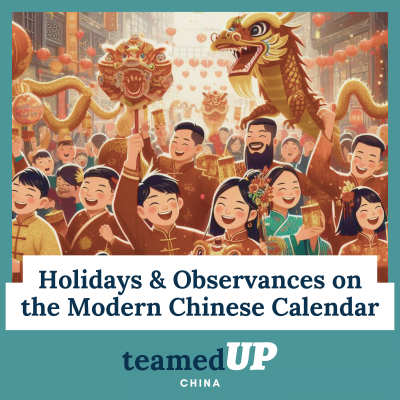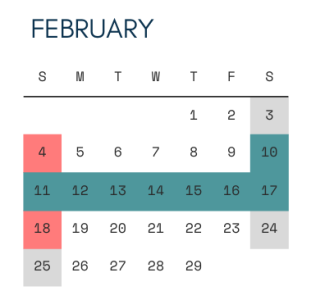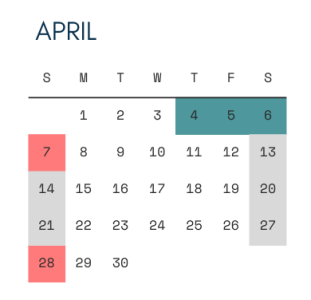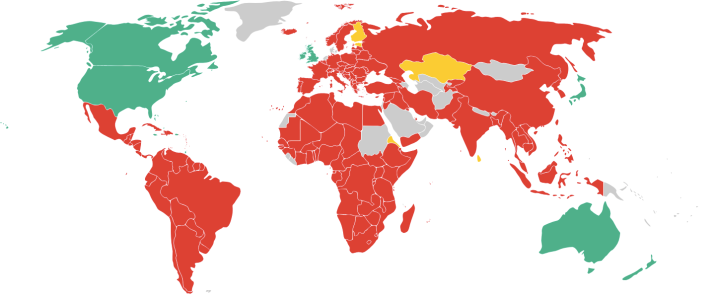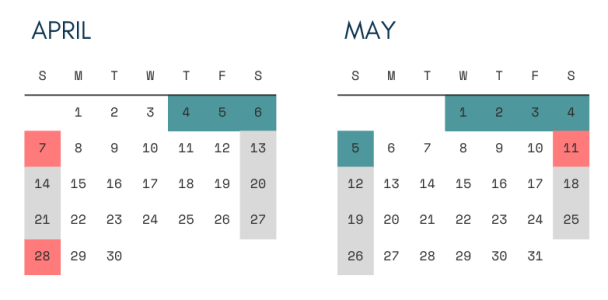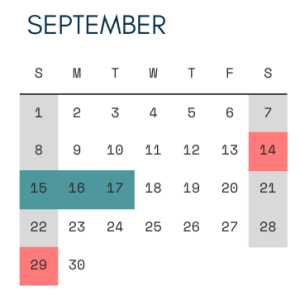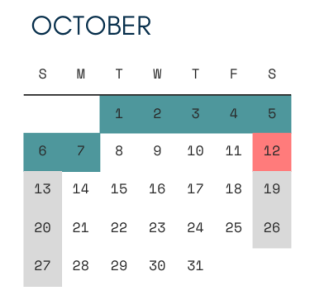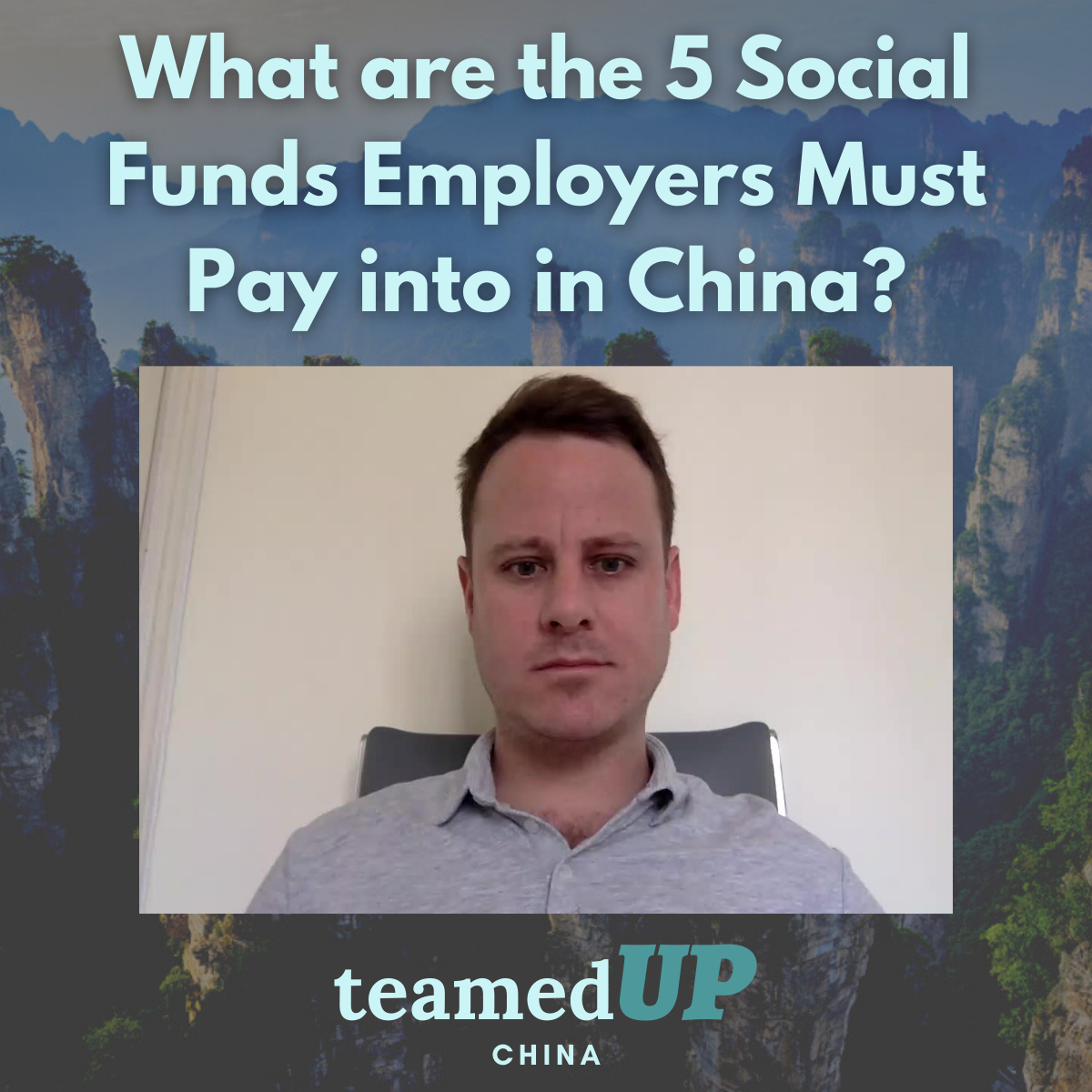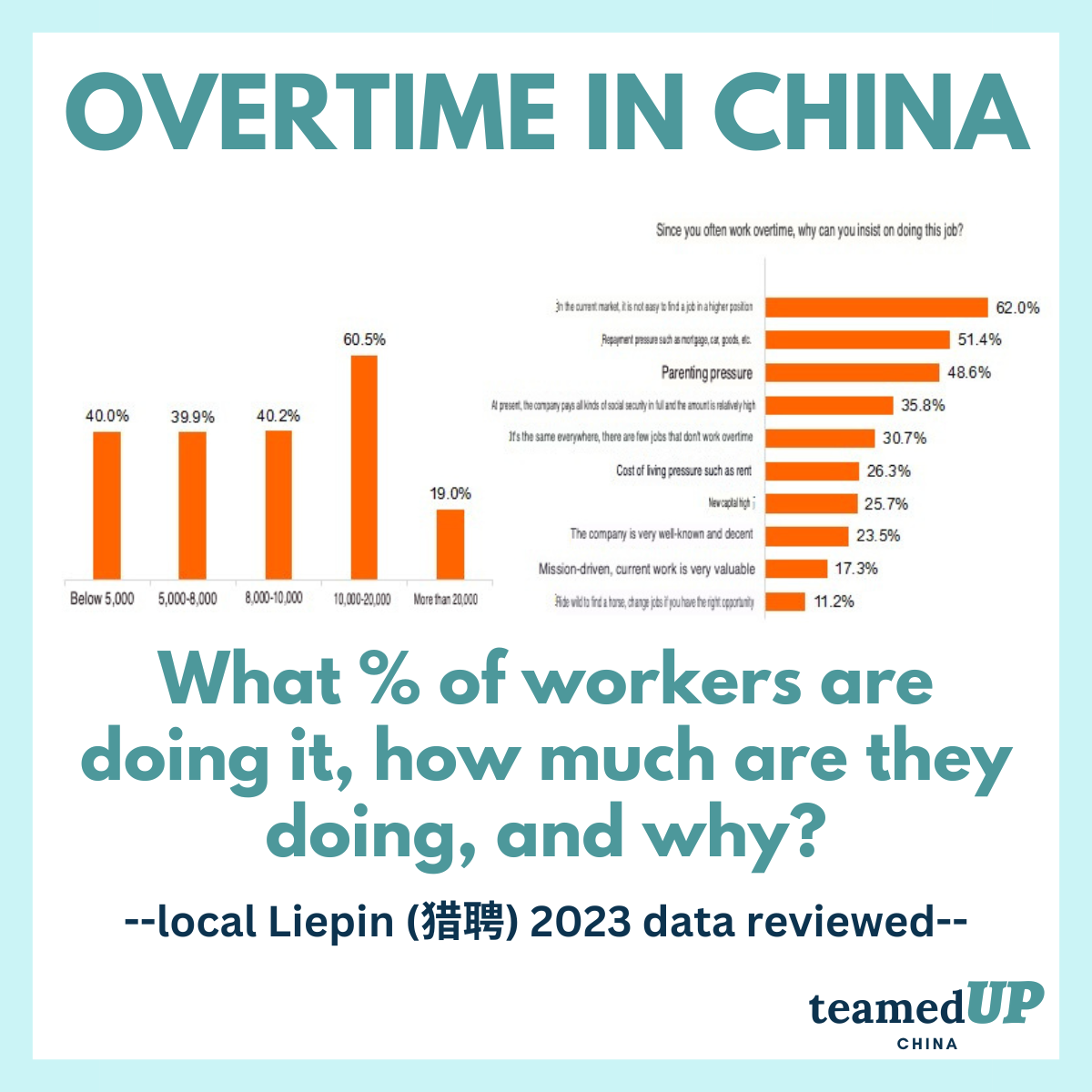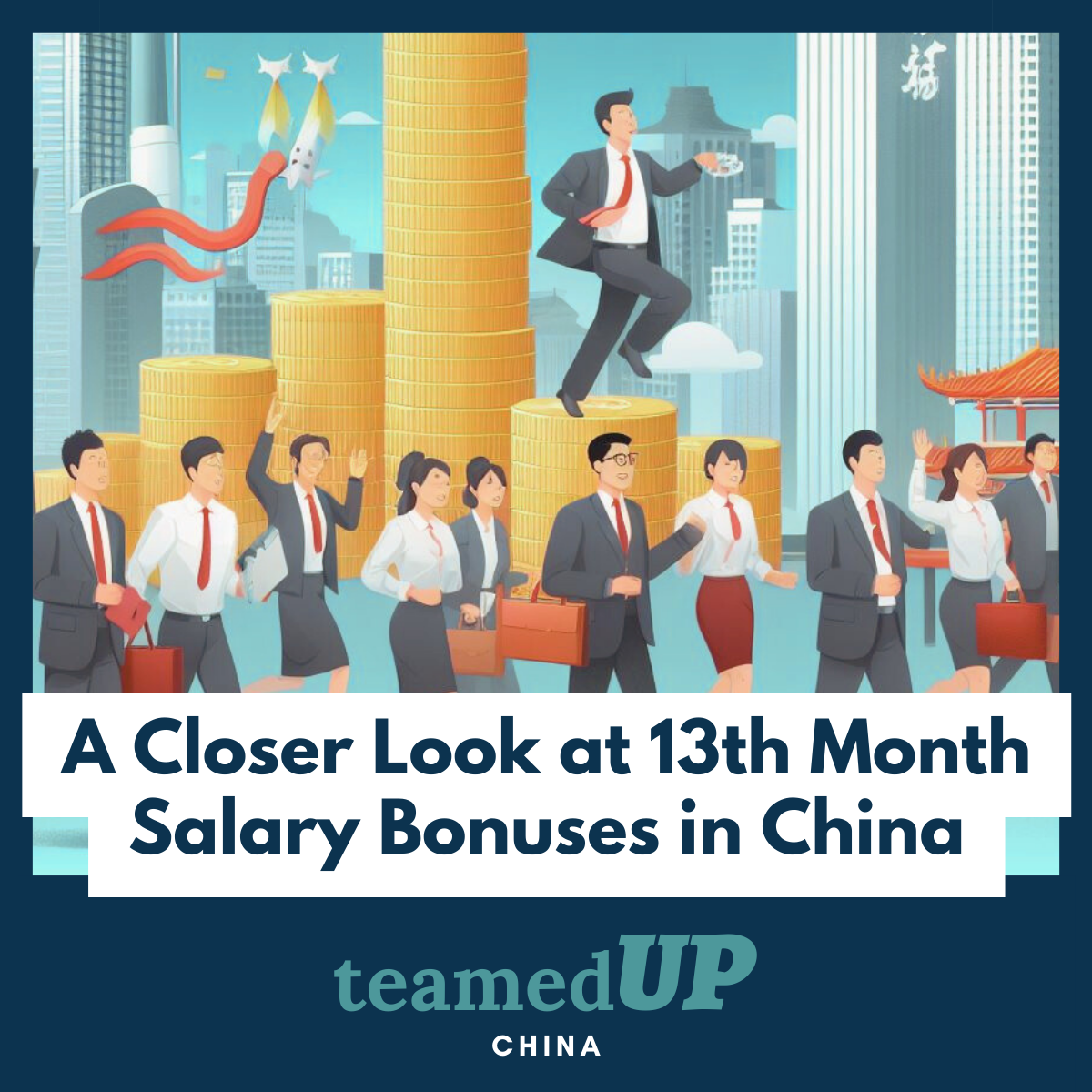The Chinese work & holiday schedule is a special one indeed!
First off, the mixing of both solar and lunar calendar holidays to form the modern ‘Public or New Calendar’ (公历/新历) is unique in itself. We also often see this referred to as the ‘lunisolar calendar‘.
Secondly, and directly related to the first, is that the government releases a public work holiday calendar every year, usually in the fall of the previous year. This calendar includes public holidays, observances, and (everyone’s favorite) special working days.
How about a third reason?! There are two huge, week-long holidays on the calendar for the Chinese New Year and National Day holidays. Most workers across the entire country have at least a seven-day stretch off (the 2024 calendar calls for one eight-day stretch!).
Alright, enough pumping it up – here’s a breakdown of every holiday in China, organized by time of year. The holiday breakdowns include Dates & Scheduling Info, a Meaning, History, & Traditions Summary, and if there are Make-up Workdays.
Also included are some of the more modern holidays that you’ll likely hear about when working in China, but may not be listed on the officially released calendar. Please note that this is an ongoing project – the dates & details listed will continue to grow & develop.
好好享受!
Holidays & Observances on The Modern Chinese Calendar
Table of Contents
ToggleNew Year’s Day (元旦 Yuándàn)
Solar Calendar: January 1st
Upon it’s establishment, The Republic of China (ROC) adopted the Gregorian Solar calendar and included January 1st or New Year’s Day. In 1949, The People’s Republic of China continued to include January 1st in their public calendar.
While there are no China-specific traditions for this (originally Western) holiday, people across China celebrate in a fashion similar to the rest of the world. Evening celebrations, fireworks (where permitted), and midnight countdowns are all common across the Middle Kingdom during this time.
Public Workdays Off: 1 day.
Make-Up Workdays: None.
Dates & Scheduling: January 1st. If January 1st falls on a Saturday or Sunday, the Friday or Monday around that weekend will be taken off.
Chinese New Year / The Spring Festival (春节 Chūnjié) / The Golden Week Holiday
Lunar Calendar: Falls in January or February
The Chinese New Year, also known as the Spring Festival, is the most important traditional festival in China, marking the beginning of the lunar new year. It’s a time of immense cultural significance, rich traditions, and joyful celebrations that span over a period of 15 days, with the exact dates varying each year based on the lunar calendar.
The Chinese New Year is deeply rooted in centuries-old customs and rituals, symbolizing new beginnings, family reunions, and the welcoming of prosperity and good fortune. Preparations for the festival begin weeks in advance, with families cleaning their homes to sweep away any ill fortune and make way for incoming luck. They also decorate their houses with red lanterns, couplets, and other symbols of tradition.
The festivities officially kick off on New Year’s Eve (除夕 chúxī) with many joining a meal together with loved ones. Families gather to feast on traditional dishes and exchange blessings for the coming year. Where allowed, fireworks light up the sky, originally believed to ward off evil spirits and bring good luck.
Throughout the 15-day celebration, various customs and activities take place, such as dragon and lion dances, temple fairs, visiting relatives and friends, giving and receiving red envelopes or 红包 Hóngbāo (containing money), and enjoying special New Year’s performances and parades.
Each year is associated with one of the 12 Chinese zodiac animals, rotating in a cycle, and festivities often reflect the characteristics of the animal of the year. For example, if it’s the Year of the Ox, you might see ox-themed decorations and performances.
Public Workdays Off: 5 days.
Make-Up Workdays: 2 days.
Dates & Scheduling: The Chinese New Year holiday has its own special scheduling system as it’s an extended holiday and on the Chinese lunisolar calendar. Check our guide to public holiday scheduling if you’re interested in the details of it!
The Lantern Festival (元宵节 Yuánxiāo jié)
Lunar Calendar: Falls in January or February (marks end of Spring Festival)
The Lantern Festival, also known as Shangyuan Festival (上元节 Shàngyuán jié), marks the end of the Chinese New Year celebrations with displays of lanterns, lights, and cultural performances.
Falling on the 15th day of the first lunar month, this festival’s origins date back over 2,000 years.
The highlight of the Lantern Festival is, of course, the dazzling array of lanterns displayed in public squares, parks, and streets. These lanterns come in various shapes, sizes, and colors, ranging from traditional red and gold to intricate designs depicting mythical creatures, flowers, and scenes from Chinese folklore.
In addition to admiring lanterns, the Lantern Festival is also a time for enjoying traditional activities and treats.
A cherished treat of the Lantern Festival is the Tangyuan (团圆 tuányuán), a sweet glutinous rice ball stuffed with various fillings like sesame paste, red bean paste, or peanuts. These round dumplings symbolize family unity and completeness, as tangyuan shares a similar pronunciation to “tuanyuan,” meaning reunion.
Public Workdays Off: None (observance).
Make-Up Workdays: None.
Dates & Scheduling: The Lantern Festival is an observance and does not get a public holiday. This is mostly due to the 7-day Nationl Day public holiday that ends just one week earlier.
International Women’s Day (国际妇女节 Guójì fùnǚ jié)
Solar Calendar: March 8th
The State Council of the People’s Republic of China announced the inclusion of Women’s Day in the new government’s first year, 1949. March 8th would be made an official holiday, with women workers given a half-day off.
Public Workdays Off: Half day for all women workers.
Make-Up Workdays: None.
Dates & Scheduling: March 8th.
(Mao era women worker image)
Zhonghe Festival (中和节 Zhōnghé jié)
Lunar Calendar: Falls in late February or March
Also known as 二月二 or the Longtaitou Festival (龙抬头 Lóng Táitóu), meaning ‘Dragon raising its head’. During the Yuan dynasty, the dragon was regarded as the deity in charge of rain, an important factor in such ancient agricultural societies.
And so dragons are the focus for this one! Get into some dragon-themed snacks on this day, such as:
- ‘Dragon scale’ spring pancakes (龙鳞饼 Lóng lín bǐng)
- ‘Dragon ear’ dumplings (饺子 jiǎozi or 龙抄手 Lóng chāoshǒu) – I suppose dumplings do look a bit like ears!
- ‘Dragon beard’ noodles (龙须面 lóng xū miàn)
- ‘Dragon eye’ fruit (龍眼 Lóngyǎn)
It’s also a popular day for traditional dragon dances, sweeping up the house, and getting haircuts!
Public Workdays Off: None (observance).
Make-Up Workdays: None.
Dates & Scheduling: The second day of the second month of the Chinese Lunar Calendar. That translates to sometime between late February and mid-March.
[dragon food images]
Arbor Day (植树节 Zhíshù jié)
Solar Calendar: March 12th
Beijing marks Arbor Day as an observance on China’s official calendar. The holiday is also known as National Tree Planting Day (全民义务植树日 Quánmín yìwù zhíshù rì). It’s interesting to note that while many countries also celebrate ‘Arbor Day’, the date March 12th is unique to China. Other countries have the holiday on a variety of different dates.
Public Workdays Off: None (observance).
Make-Up Workdays: None.
Dates & Scheduling: March 12th.
March Equinox (春分 Chūnfēn)
Solar Calendar (Tropical Year): March 19, 20, or 21.
China also marks the March Equinox as an observance on calendar. The March equinox is the moment the Sun crosses the celestial equator from south to north. This happens on March 19, 20, or 21 every year. [source: March Equinox]
Public Workdays Off: None (observance).
Make-Up Workdays: None.
Dates & Scheduling: Occurs on March 19, 20, or 21. The small range in days is due to the difference between the Gregorian solar calendar and a full tropical year, as well as a reset for leap year days.
QingMing Festival (清明节 Qīngmíng jié)
Solar Calendar: April 4th or 5th
The Qingming holiday can go by several other names, including Qingming Jie (清明节), Qing Ming Festival (清明節), Tomb Sweeping Day (掃墳節), Chinese Memorial Day, Ancestors’ Day, the Clear Brightness Festival, or the Pure Brightness Festival.
The traditional activities on this holiday include visiting the tombs of relatives and ‘sweeping’ or paying respects to them, and enjoying sticky rice balls named Qīngtuán (青糰).
Public Workdays Off: 2 days.
Make-Up Workdays: 1 day.
Dates & Scheduling: Qingming falls on the 15th day after the March Equinox (listed above), which is either April 4th or 5th. Work-wise, Beijing traditionally schedules a 3-day long weekend around the April date, as well as 1 make-up day on a nearby weekend day.
Labor Day Holiday (劳动节 Láodòng jié)
Solar Calendar: May 1st
China joins a large group of countries around the world on May 1st in celebrating Labor Day, also known as International Workers Day or May Day.
In China, the public holiday was extended to 5 days starting in 2020.
Public Workdays Off: 3 days.
Make-Up Workdays: 2 days.
Dates & Scheduling: Work-wise, Beijing traditionally schedules 5 continuous days off work around the May 1st date, as well as 2 make-up days held on nearby weekends. The scheduling optimizes 5 days off in a row, intending to get people traveling and fuel boost consumer spending (a plan that usually works!).
Youth Day (青年节 Qīngnián jié)
Solar Calendar: May 4th
Youth Day was established in 1949 to commemorate the May 4th movement, and shine a spotlight on younger generations.
Public Workdays Off: Half day for ‘youth’ aged 14+. Note: May 4th is usually already a public day off due to the Labor Day Holiday (details just above).
Make-Up Workdays: None.
Dates & Scheduling: May 4th.
Children’s Day (儿童节 értóng jié)
Solar Calendar: June 1st
China is part of a large group of (mostly) Communist and post-Communist countries celebrating Children’s Day on June 1st. Children may recieve gifts and are encouraged to spend time with family doing educational activities.
Public Workdays Off: 1 day for children under 13 years old.
Make-Up Workdays: None.
Dates & Scheduling: June 1st.
Dragon Boat Festival (端午节 Duānwǔ jié)
Lunar Calendar: Falls in late May or early June
The Dragon Boat Festival is a folk festival integrating worship of gods and ancestors, praying for good luck and warding off evil spirits, celebrating, entertainment and eating.
A commemoration of the ancient poet Qu Yuan. Celebrated by holding dragon boat races and eating sticky rice dumplings called zongzi.
Public Workdays Off: 1 day.
Make-Up Workdays: Usually none (see below).
Dates & Scheduling: The festival falls in late May or early June. The *ideal* format is a 3-day weekend with one official public holiday, but this varies depending on what day of the week the holiday falls on. (check out our Special Workdays scheduling guide).
June Solstice (夏至 xiàzhì)
Solar Calendar (Tropical Year): June 20, 21, or 22.
China marks the June Solstice as an observation on the calendar. The June (summer) solstice marks the longest day north of the equator and the shortest day in the south.
Public Workdays Off: None (observance).
Make-Up Workdays: None.
Dates & Scheduling: Occurs on June 20,21, or 22.. The small range in days is due to the difference between the Gregorian solar calendar and a full tropical year, as well as a reset for leap year days.
CCP Founding Day (建党节 Jiàndǎng jié)
Solar Calendar: July 1st
The Chinese Communist Party (CCP) was founded on 1 July 1921 in Shanghai.
Public Workdays Off: None (observance).
Make-Up Workdays: None.
Dates & Scheduling: July 1st.
Maritime Day (中国航海日 Zhōngguó hánghǎi rì)
Solar Calendar: July 11th
This date may be referred to as China National Maritime Day, Maritime Day of China, China Maritime Day, Maritime Day in China (lots of options!). It is an observance to commemorate the first voyage of famous Chinese seafarer Zheng He.
Public Workdays Off: None (observance).
Make-Up Workdays: None.
Dates & Scheduling: July 11th.
People’s Liberation Army Day (建军节 Jiànjūn jié)
Solar Calendar: August 1st
This day also has a few different naming options: PLA Day, Army Day, and the Founding Day of the Chinese People’s Liberation Army (中国人民解放军建军纪念日) are all variations that you might come across. The last name listed pretty much sums up the holiday in a title!
The People’s Liberation Army was founded on August 1st, 1927 – and in direct relation Nanchang Uprising. A flag raising ceremony in Beijing as well as several military-related events are held every year.
Public Workdays Off: Armed forces have a shortened workday. No public days off for standard workers.
Make-Up Workdays: None.
Dates & Scheduling: August 1st.
Chinese Valentine’s Day (七夕 Qīxī)
Lunar Calendar: Falls sometime in August
This one is also known as the ‘double seventh festival’ or ‘double seven festival’, as it is celebrated on the 7th day of the 7th on the Chinese lunisolar calendar.
It’s a date to celebrate romantic love! Originally tying in to the annual meeting of The Cowherd and the Weaver Girl in Chnese mythology.
Public Workdays Off: None (observance).
Make-Up Workdays: None.
Dates & Scheduling: Falls in August.
Ghost Festival (中元节 Zhōng yuán jié)
Lunar Calendar: Falls in August or Early September
An interesting, yet lesser-known, festival on the Chinese calendar, the Ghost Festival may also be referred to in English as the Spirit Festival, Hungry Ghost Festival, Zhongyuan Festival, or Yulanpen Festival.
In Taoism and Buddhism, this is a day where the deceased are believed to visit the living. While there is some similarity to the Qingming Festival, the Ghost Festival includes paying respects to all deceased, while Qingming only includes ancestors and older generations.
Public Workdays Off: None (observance).
Make-Up Workdays: None.
Dates & Scheduling: Falls in August or early September. Officially the fifteenth day of the seventh month in the lunar calendar
Teacher’s Day (教师节 Jiàoshī jié)
Solar Calendar: September 10th
China’s culture puts quite a high value on education. Teacher’s Day celebrates the contributions made by modern teachers as well as the greats throughout history. Teachers often receive gifts from school administrators, parents, and current and former students. Some educators may even get the day off.
Why September 10th? It is believed to be due to the similar pronunciation between the word “teacher” (教师; jiao shi) and the two digits 9 (九; jiu), 10 (十; shi) in the date. There has interestingly been an ongoing conversation about changing the holiday to September 28th, the birth date of Confucius.
Public Workdays Off: None (observance).
Make-Up Workdays: None.
Dates & Scheduling: September 10th.
Mid-Autumn Festival (中秋节 Zhōngqiū jié)
Lunar Calendar: Falls in Mid-September to Early October
The Mid-Autumn Festival, also known as the Moon Festival, is an important date on the Chinese calendar! It is believed that the moon is brightest on this date and thus marks the peak of the harvest season.
The festival is over 3,000 years old! Traditions include: Making & eating Mooncakes, as well as carrying & displaying traditional lanterns.
Public Workdays Off: 1 day.
Make-Up Workdays: 1 or none, depending on which day of the week the holiday falls (guide to make-up workdays schedule in China).
Dates & Scheduling: This holiday usually takes place just before the big National Day holiday, and equates to something resembling a 3-day weekend.
September Equinox (九月春分 jiǔ yuè chūnfēn)
Solar Calendar (Tropical Year): September 21 to 24
The September Equinox is the day the Sun crosses the celestial equator from north to south.
This is added here as the Mid-Autumn Festival shares a very similar timing with the September Equinox, the difference being that they fall under two separate calendars – the Lunar (Mid-Autumn) and Tropical Solar Year (September Equinox).
Public Workdays Off: None (observance).
Make-Up Workdays: None.
Dates & Scheduling: Between September 21st-24th. Very similar time of year to, and sometimes overlaps with, the Mid-Autumn Festival.
National Day Holiday (国庆节 Guóqìng jié)
Solar Calendar: October 1st, usually celebrated Oct 1-7
The Chinese National Day Holiday, also known as National Day Golden Week, is an annual celebration marking the founding of the People’s Republic of China on October 1st, 1949. It’s one of the most significant holidays in China, marked by various festivities, cultural events, and ceremonies across the country.
During this week-long holiday, which typically lasts from October 1st to October 7th, Chinese citizens enjoy time off work to travel, reunite with family, and participate in nationalistic activities. Many take advantage of this extended break to explore domestic tourist destinations (unfortunately resulting in crowded transportation hubs over the break).
Throughout the National Day Holiday, festivities include flag-raising ceremonies, fireworks displays, concerts, and cultural performances. The streets are adorned with national flags, banners, and decorations in red and gold, echoing the colors of the Chinese flag.
As one of China’s most important holidays, the National Day Golden Week has a significant impact on the country’s economy, tourism industry, and social life.
Public Workdays Off: 5 days.
Make-Up Workdays: 2 days.
Dates & Scheduling: As a standard, this holiday always takes place October 1st – October 7th.
Double Ninth Festival (重阳节 Chóngyáng jié)
Lunar Calendar: Falls sometime in Mid-Late October
Double Nine refers to the ninth day of the ninth month in the lunar calendar. It’s a popular time to climb a mountain or hike, and drink wine made from Chrysanthemum flower, among other traditional activities.
Public Workdays Off: None (observance).
Make-Up Workdays: None.
Dates & Scheduling: Mid-late October.
Journalists’ Day
Solar Calendar: November 8th
Journalists’ Day was set up in 1999 in memory of Liu Yusheng, a reporter executed in 1933 for pro-communist views. Today, members of the press are honored on Journalists’ Day for their role in promoting the party and state in China and abroad.
Public Workdays Off: None (observance).
Make-Up Workdays: None.
Dates & Scheduling: November 8th.
Singles Day (光棍节 Guānggùn jié) / Double 11 (双11 Shuāng shíyī)
Solar Calendar: November 11th
Singles Day was originally set up as an unofficial holiday for single people, a sort of counter-point holiday to Valentine’s Day. Note the numerical format here: 11/11 –> there are four singles in there!
One way single people celebrate is by gathering together in activities or events. Perhaps more famously, singles treat themselves to nice gifts that they may have missed out on getting from a valentine.
This has EXPLODED into what most people know as a giant online shopping day, not unlike Cyber Monday. Since 2009, e-commerce giants like Alibaba and JinDong have seen sales grow at an astounding rate. On Novemebr 11th 2021 along , the two companies combined for nearly $140 billion USD in sales! …in one day! ..and that’s just two companies!
Public Workdays Off: None (observance).
Make-Up Workdays: None.
Dates & Scheduling: November 11th (11/11).
December Solstice (冬至 Dōngzhì)
Solar Calendar (Tropical Year): December 20th, 21st, or 22nd. Usually December 21st.
China marks the December Solstice as an observation on the calendar. The December (winter) solstice marks the shortest day north of the equator (where China is located) and the longest day in the south.
Public Workdays Off: None (observance).
Make-Up Workdays: None.
Dates & Scheduling: Falls between December 20th-22nd, usually December 21st.
Christmas (圣诞节 Shèngdàn jié)
Solar Calendar: December 25th
Hohoho!
China does have a solid amount of local Christians celebrating the holidays, as well as a large amount of foreign workers and students throughout the nation.
Christian or not, Christmas decorations, gifts, songs, and events are enjoyed throughout December in major cities across China.
Public Workdays Off: None (observance).
Make-Up Workdays: None.
Dates & Scheduling: December 25th.
Table of Contents
ToggleHiring in China?
We can help, and stay within your budget!
Our China Candidate Sourcing Pro service helps companies utilize leading Chinese job platforms such as Maimai, Zhaopin, 51job, BOSS Zhipin, Lagou, 58, Ganji, and Liepin. Contact Us for a free consultation to discuss hiring goals, salary & compensation budgets in China, and if TeamedUp China is the right fit to support your organization.
Let’s find your next great China-based team member today.

